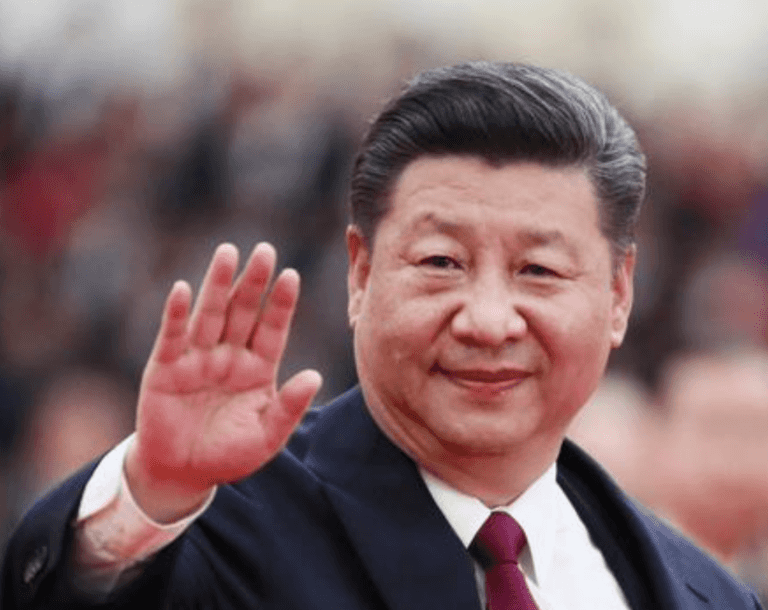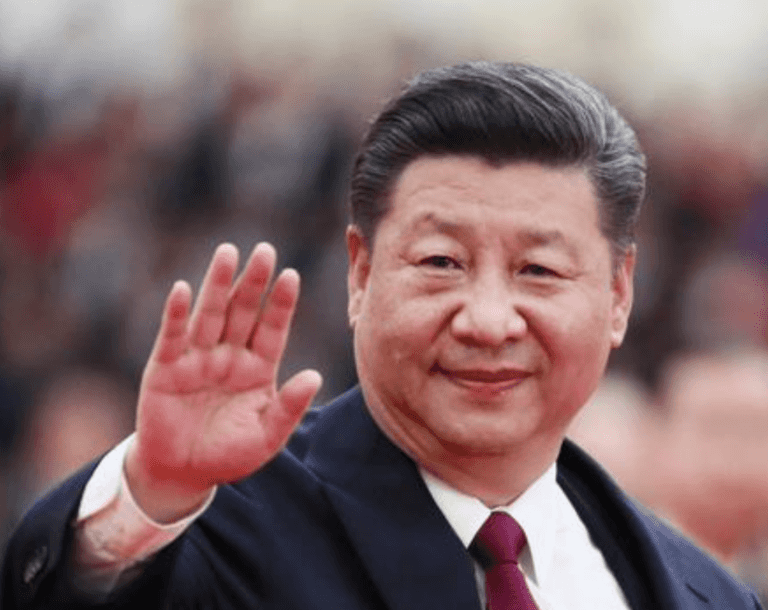
This article was originally published by Radio Free Asia and is reprinted with permission.
Ruling Chinese Communist Party leader Xi Jinping has vowed to strengthen control over families, businesses and financial markets, with a slew of measures to advance his vision of an orderly economy that fulfills Beijing’s top political priorities and addresses growing inequality.
In a policy document published on Sunday in the wake of a top-level meeting, Xi said the leadership of the party was China’s “fundamental guarantee” of prosperity and stability in the face of “risks and challenges,” with security remaining a top priority for his administration.
“China has entered a period in which strategic opportunities, risks, and challenges coexist and uncertainties and unpredictability are rising,” Xi said in the document, which state media said was a transcript of a speech he gave at the third plenum of the party’s Central Committee in Beijing last week.
“We need to deal with major risks and challenges and secure steady and sustained progress in the cause of the party and the country,” Xi said.
“National security provides a pivotal foundation for ensuring steady and sustained progress in Chinese modernization,” according to the document, which was published by state news agency Xinhua in full, and which mentions the word “security” 41 times.
Xi’s government will use science and technology to safeguard national security, as well as strengthening the country’s “integrated” law enforcement system, an apparent reference to law enforcement at neighborhood level by local officials, militias and “grid workers.”
“Our innovation capacity falls short of the requirements for high-quality development,” Xi wrote, adding: “The over-reliance on key and core technologies controlled by others has not been fundamentally changed.”
His directive comes as China largely avoided disruption caused by a faulty security update to Microsoft’s Windows operating system, having largely transitioned away from reliance on U.S. operating systems since 2008.
The directive also vowed to boost homegrown tech and tweak rules to help cash-strapped local governments and internal economic migrants.
Local governments will be allowed to issue bonds for a wider range of purposes, although the central government will top up their coffers and have more of a say in what funds are spent on, according to the document.
The government will also reform the current household registration, or “hukou”, system to enable internal migrants to access social security benefits anywhere in China, not just in the city of their birth, and to extend those benefits to gig economy workers.
The wording of the document suggests that Xi’s administration wants to increase top-down control of economic and social activity.
“Economic structural reform will remain our priority [and includes] building a unified national market, and refining the systems underpinning the market economy,” it said.
That will include a mechanism for ensuring funding increases for “future-oriented industries.”
‘Dead-end street’
The government will also look at setting up a “unified national population management system,” a move that will likely seek to boost the flagging birth rate by encouraging more births and address the aging population by gradually raising the retirement age, according to the directive.
The third plenum said in an official communique last week that it would improve the party’s grasp of Marxist economics, including improved handling of the relationship between the forces of production and the “economic base” of the general population.
It also said it would improve its “macroeconomic governance,” suggesting that Xi’s administration will forge ahead with its top-down, government-directed approach to economic management, at the expense of the market forces that were given freer rein under the reforms of Deng Xiaoping.
In national defense, Xi wants to “improve the institutions and mechanisms for leading and managing the people’s armed forces, deepen reform of joint operations systems, and deepen military-civilian reforms,” the document said, without giving specific details.
“There are a lot of security issues mentioned in this document, and a wide range of other issues,” military analyst Qi Leyi told RFA Mandarin on Monday.
He said the emphasis on “joint combat” was likely linked to preparations for a possible military invasion of democratic Taiwan.
“The fact that it talks so much about security shows us … that Xi Jinping isn’t confident in his power,” Qi said. “This has nothing to do with the country or its people — it’s a threat to global security.”
The document comes at a time when Xi faces huge practical challenges in running the economy and preventing social unrest, according to current affairs commentator Chen Pokong.
“Xi Jinping’s governance is a mess,” Chen said. “The economy is declining, people’s livelihood is in ruins, civil servants’ salaries are being cut, people are unemployed.”
“Recent car attacks and stabbings show that society is unstable and has descended into resentment, and dissatisfaction with Xi Jinping and the Communist Party,” he said.
“The one-party dictatorship and the one-man dictatorship have sent China down a dead end street.”
American Military News Rephrased By: InfoArmed
